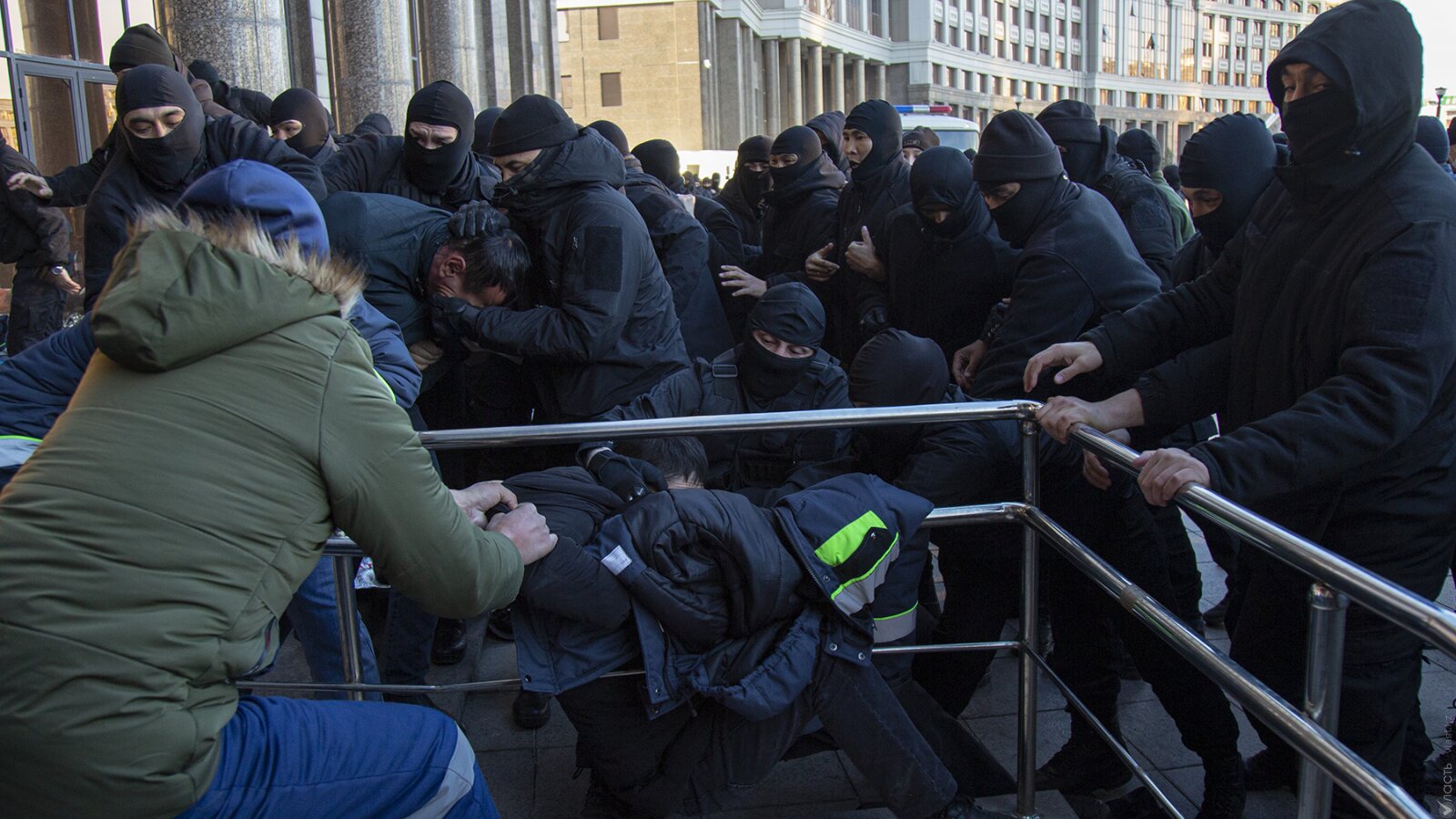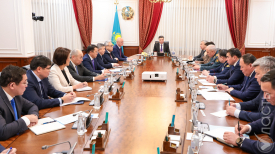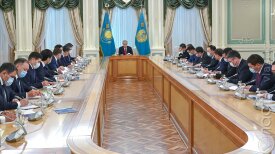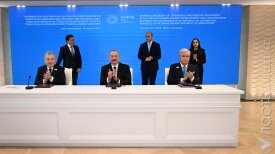“How come they couldn’t agree?! They must come out now and talk, they can’t allow people to stand out here for so long,” member of parliament Rinat Zaitov said, indignant, on April 11 when he and two other legislators approached the workers after they had been waiting to be heard for almost an entire day. And Zaitov was partially right: The workers were not allowed to stand outside the ministry much longer, as they were soon afterwards forcibly detained by special police forces in black masks.
Minutes earlier, Serik Ordabayev, from the local department of internal affairs, had read out a standard warning about the illegality of the demonstration into a megaphone and asked the workers to disperse. Dozens of workers then asked back where they should go, they are from the Mangistau region after all. Ordabayev took a deep breath and told them, in Russian this time, to go home. For Zhanaozen workers, home is 2,700 kilometers away, so they asked the official to answer their questions first. Ordabayev, however, turned around and left.
This vignette and the subsequent detentions showed once again that the government refuses to listen to the people and is often quick to resort to violence. Almasadam Satkaliyev, the new energy minister who took his oath on the same day, missed his chance to meet with the workers and start his new position by solving a pressing labor issue.
The negotiations with the workers were left to representatives of state-owned Kazmunaigas, which framed the dispute as a conflict between two private companies. Dismissive of the structural demands of the workers, the national company chose to defend the interests of its subsidiaries, service companies, and big business. Workers, on their part, asked the government to have a larger role.
But instead of resolving long-standing problems concerning workers and residents of the Mangistau region (such as environmental, employment, and regional development issues), they offered a short term solution: A temporary employment opportunity at another company and the extension of tendered projects from one to three years. Instead of holding an open dialogue, representatives of Kazmunaigas stabbed the workers in the back by saying that their claims “go against the interests of other Zhanaozen residents”.
Last year, laid-off workers also went to Astana, they also demonstrated for months outside the government building in Zhanaozen. They sent letters, notified the ministry of their arrival. The government’s deployment of police vans, however, resulted faster than their readiness to hold a “constructive dialogue”. The ministries of labor and energy did not always show up at the negotiating table.
There is no sand near the presidential palace or the ministerial buildings, but the “listening state” always finds a place to bury their head in, be it in their warm offices or in their empty responses.
Поддержите журналистику, которой доверяют.








